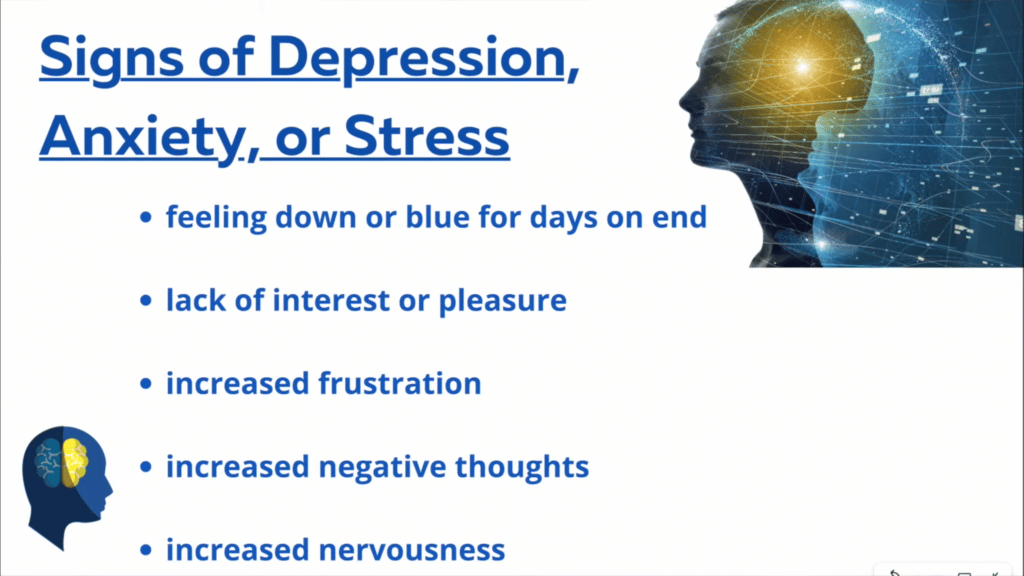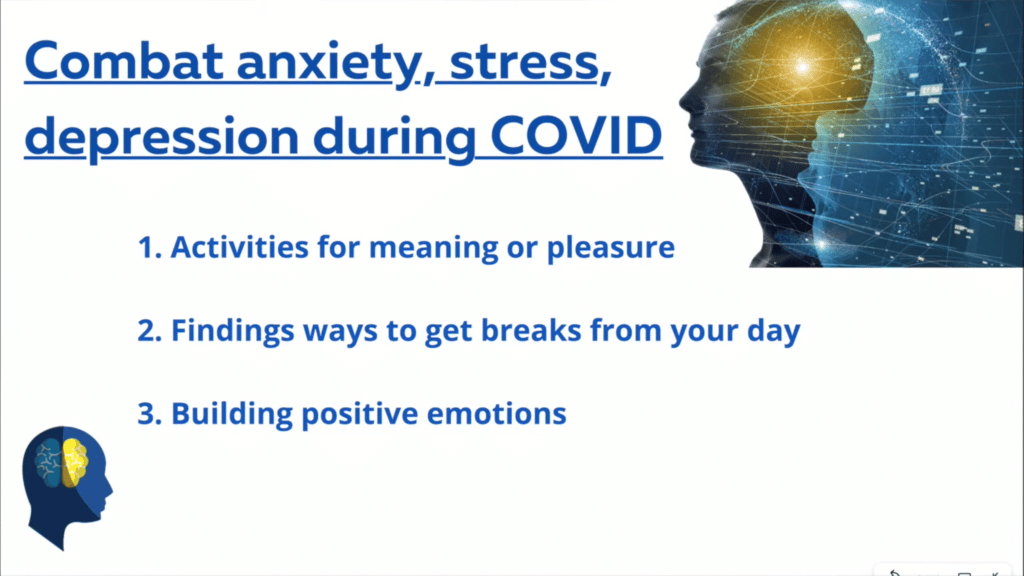Difficult times like the COVID-19 pandemic can really make us feel overwhelmed and experience a lot of stress. This clip discusses some research-supported ways of recognizing and coping with anxiety, stress, and/or depression during these tough times.
If you are interested in additional information about how to cope with anxiety, stress, and depression during the pandemic, there are a few good resources. There is a good new book on how anxiety and stress can be affected by pandemics and similar events. There is also a good book on depression with some ways to cope with it.
Welcome back, this is Dr. Matt B with your Emotional Minutes. Today we’re talking about what can happen when difficult or stressful experiences come up. More specifically strategies for coping with anxiety, stress, and depression.
Why the Pandemic Causes Anxiety, Stress, and Depression
During the COVID-19 pandemic, it can be really easy to lose track of fundamental aspects of yourself. This includes your sense of who you are and your sense of purpose in life. When this happens, a lot can just be overwhelming.
This is especially true if you’ve got a lot of responsibilities, such as kids being at home, taking care of errands, and worrying about contracting the virus. It’s a really valid concern and a legitimate reason to feel down, blue, anxious, or nervous.
Recognizing Depression, Anxiety, and Stress
So what are some ways to recognize that? Some signs of experiencing stress, depression, or anxiety are:

If you experience these things and they’re impacting your goals or life, I recommend contacting a mental health counselor. A lot of people are still giving mental health services in the form of telehealth. It can just be a couple of sessions to get some support, or it can be long-term.
So, what are some things you can do to maintain and maximize your mental health when you can’t control things?
Coping with Anxiety, Depression, and Stress by Staying Connected
One important action for coping with anxiety, stress, and depression is staying connected with things that give you a sense of joy or purpose. This may require being creative, especially if you can’t go outside and do all the activities you want to do. For example, if you like skiing, watch ski videos or look up information about ski destinations. Another good example is gardening. Read up on plants you want or what soil is good or other ways of keeping engaged with gardening.
Take a Breather
The second tip for coping with anxiety, stress, and depression is giving yourself time to rest and relax or get breaks; sometimes that can be difficult, you might have children, you might have a lot of responsibilities to do. Finding time for yourself can take some creativity. For example, try to get someone to watch the kids for you for 15 or 20 minutes. Research shows the ability to get daily time to yourself and do things you enjoy can be really helpful.
Boost Your Positive Emotions
The third thing for coping with anxiety, stress, and depression is maximizing your positive emotions. This means doing things like writing a thank you letter to someone who had a good impact on your life. Interestingly enough, you actually give yourself a good feeling from doing things that bring others happiness. Something similar is using a gratitude journal to write things you are grateful for a couple of times a week.

Coping with Anxiety, Depression, and Stress by Bringing it Together
A lot of difficult events can capture our focus and we tend to focus on the negative, difficult, or stressful aspects a lot more. These strategies can help us shift our focus to things that are positive and meaningful to us. Finding time to do these things can be challenging with everything going on and finding ways to fit them in your life, even just a couple of days a week, can go a long way. Even if you can just get 10, 15, 20 minutes to do it.



